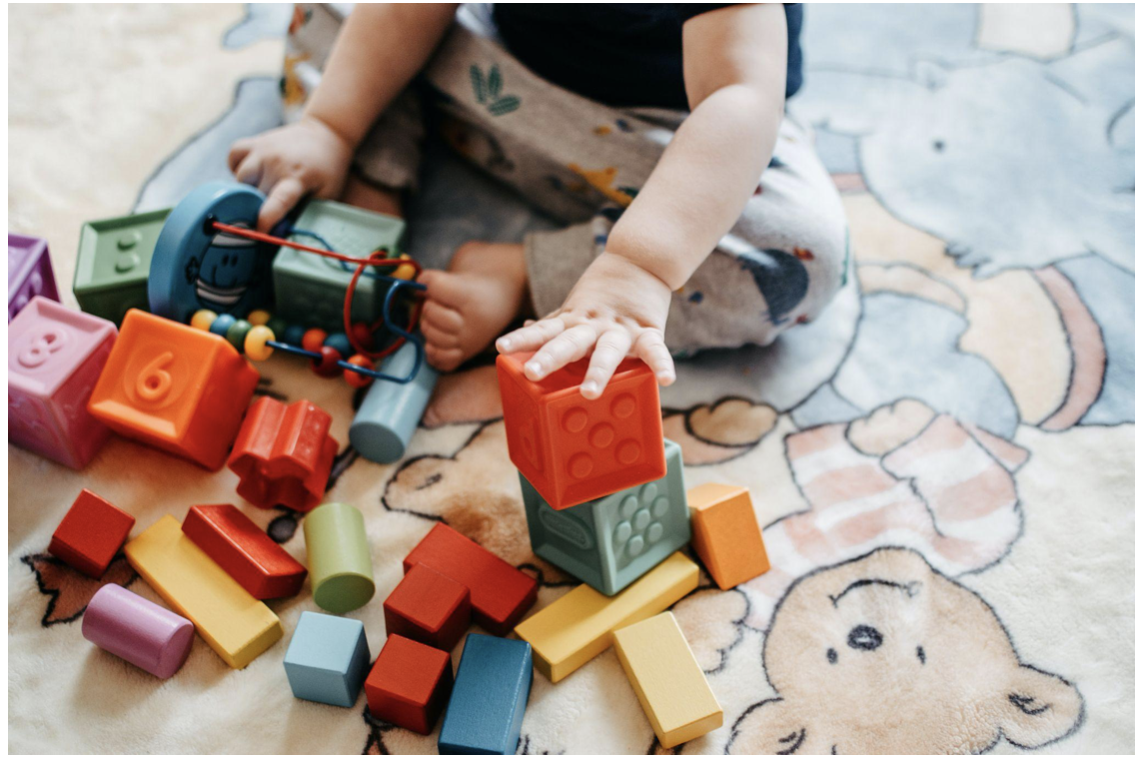Although autism is something that may typically be diagnosed when children are a little older, parents may be able to recognize patterns at a much earlier age as well, when babies are just a few months old. All babies tend to develop on their individual timelines, but there may be some giveaway signs that an infant is on the spectrum, and it’s helpful to get a thorough diagnosis as early as possible. To learn more about what some of the main symptoms can be, keep reading below.
Photo by Lisa Fotios:
What Is Autism?
Autism refers to a developmental disorder that can vary in symptoms and conditions due to it being a spectrum, and individual cases can range from mild all the way to severe. Examples of what an autistic person may be affected by, specifically autistic children, include communication skills, learning, and recognition abilities alongside other social skills as well.
Some symptoms may be more obvious than others, so being aware of how a child is progressing can be beneficial with what is known as early intervention, which can include autism therapy. You may even get an earlier diagnosis than the average age, which can be anywhere between 2 and 5 years old.
What Are the Main Symptoms of Autism?
Although autism can have a range of symptoms, and some may not apply in an individual case at all, depending on where an autistic child may be on the spectrum, there are some main symptoms that could be related to early signs of autism.
Lack of Communication
One of the most common and earliest symptoms of autism can be a lack of communication, and this could be verbal or otherwise.
Autistic babies may find it more difficult than other infants to communicate what it is that they want, and this could also manifest in the way of repeating words over and over again — also known as echolalia.
Although they may be repeating the same word often, it may not be an indication of what they are actually trying to communicate.
Difficulty in understanding emotions may also be an early sign of autism in infants. Babies tend to actively respond to their caregivers’ interactions with them. Typically, although babies may not be able to respond with words, they will still react when an adult interacts with them positively and may smile or cry in response to an emotional bid.
This difficulty also extends to not being able to discern or be aware of emotion conveyed through tone as well. Autistic babies may not be able to pick up on sadness or anger and may react to it the same as any other emotion. They may also avoid or not recognize eye contact as a major part of face-to-face communication.
In return, they may also communicate in a monotonous tone that does not carry any emotion or expression relevant to the situation at hand.
Photo by Karolina Grabowska:
Delayed Milestones
Another early symptom that can be detected is delayed milestones. Naturally, there is no set age where babies begin to do things, but there are rough markers that most babies will reach. If this isn’t the case, then it’s definitely worth visiting the pediatrician.
Delayed milestones could include not showing any facial expressions, which typically happens by the age of 9 months. Babies usually smile by the age of six months and will also begin to make noises and word-like sounds by the age of 12 months. Gesturing with their hands, such as waving or pointing at objects, is also something that is typically seen by the age of 12 months.
If any of these markers are not met, or you cannot see enough of them being displayed consistently, it’s definitely worth contacting your pediatrician so that further steps for diagnosis can be taken as promptly as possible.
Disinterest in Surroundings
Another sign of autism at an early age could be when autistic babies are completely disinterested in their surroundings, whether that’s not wanting to reach for specific objects or not reacting to sounds coming from around them.
Autistic babies from the age of 0–3 months may not follow objects with their eyes, and when they grow a little older and fall into the 4–7-month age, this translates into not reaching for objects or not grasping them in their hands.
Similarly, in 0–3 months, autistic babies may also be especially sensitive to loud noises, but a few months later, at a slightly later stage, they may show complete disinterest in sounds that are coming from their surrounding environment.
When it comes to the 12-month mark, autistic babies may find it difficult to stand even with support and, by that age, may still not point at objects or pictures or demonstrate any sort of recognition or interest towards them either.
Next Steps
Now that you are more aware of what some of the early signs and symptoms may look like in autistic babies, it’s time to think about the next steps and how you can best help your child.
Getting a more advanced diagnosis will definitely assist in determining where on the spectrum your child is, and the earlier this is done, the more that can be implemented to ensure that a healthy amount of support is put into place.
Photo by Yan Krukau:
The post What Are the 3 Main Symptoms of Autism in Babies? appeared first on Tamara Like Camera.
This content was originally published here.
